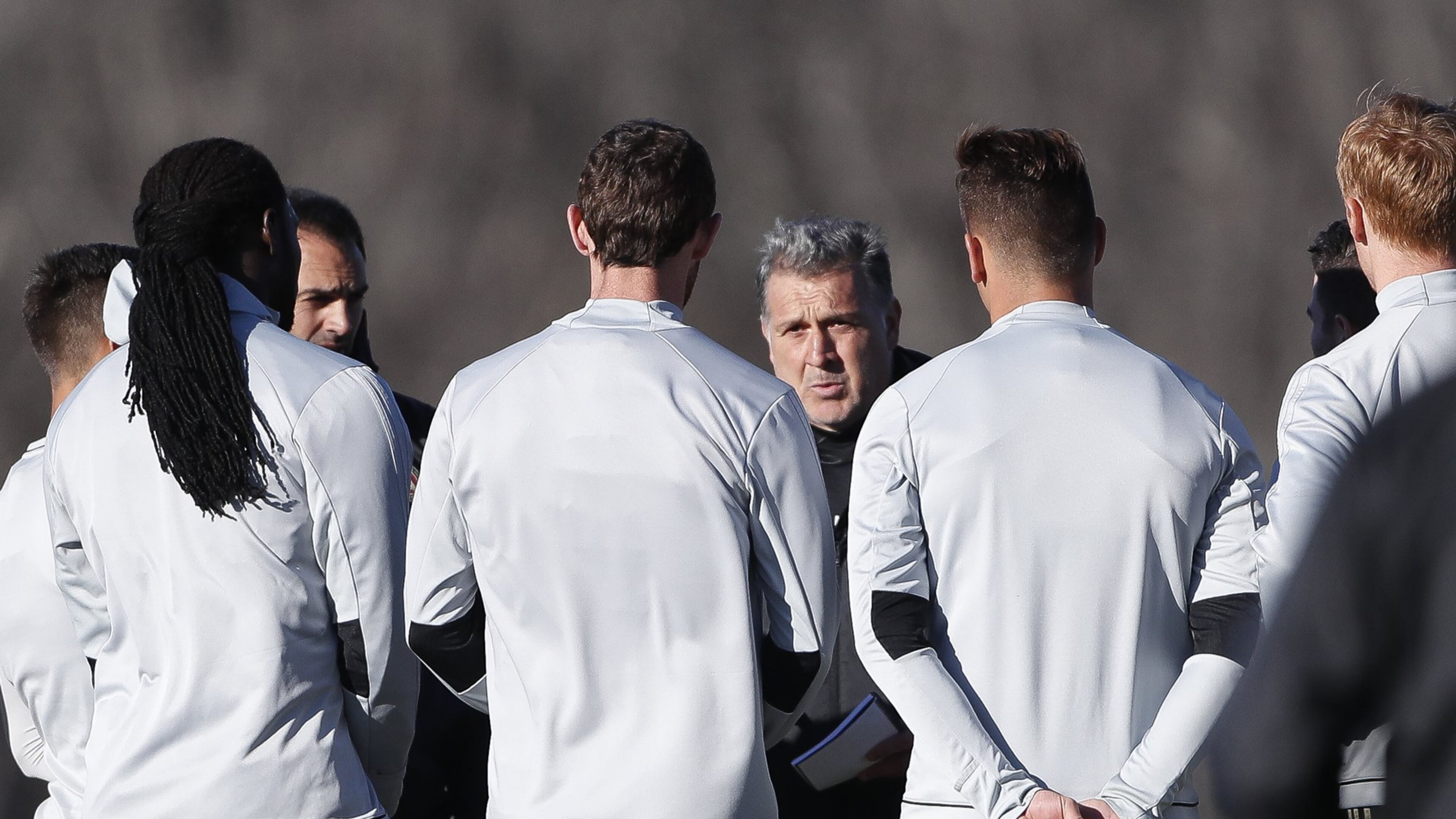Q&A: Atlanta United manager Gerardo Martino

It’s difficult to overestimate the reputation that Gerardo Martino carries in South America.
To a man, each player from South America gave a version of the same answer when asked why they agreed to join Atlanta United, an expansion team in MLS: “Tata called me.”
“Tata” is Martino’s nickname.
Martino’s reputation began as a standout player for Newell’s Old Boys in his native Argentina.
He eventually transitioned to management, finding success with club teams throughout South America before taking over Paraguay’s national team. From there, he managed Newell’s Old Boys before being tapped by Barcelona, arguably the world’s best team, in Spain. He moved on to manage Argentina from 2014-16.
And then came what may be considered one of the more interesting moves in soccer coaching history: an expansion team in North America.
Martino’s strategies and tactics have been documented thoroughly in stories in The Atlanta Journal-Constitution. Martino discussed some of how soccer has shaped his life in an interview translated by an Atlanta United staff member.
Q: What was your first soccer memory?
A: My first soccer memory was my debut in first division because I was fulfilling a dream. Playing so many years in inferior divisions and at 17 being able to play in first division.
Q: How has the memory influenced your life?
A: I think the influence it has is that with effort and work you can achieve any goals that you propose.
Q: Who was your favorite player when you were a child? Why?
A: I always liked Américo Rubén Gallego. Today he's a coach, but he was a player for many years with Newell's Old Boys, River Plate, and the Argentine national team. He was World Cup champion in 1978. But that had little to do with my style of play.
Q: When you were a player, who was your biggest influence? Why?
A: And as a player I liked another player who was on the 1986 World Cup team that won, Enrique Bochini.
Q: When you became a manger, who was your biggest influence? Why?
A: My influences are obviously all the coaches I played for over my career like Juan Carlos Montes, Jose Yudica, Jorge Raúl Solari and especially Marcelo Bielsa.
Q: In your opinion, now that you have spent time in the U.S. and gotten a sense of the culture, does the think the U.S. will win a World Cup?
A: I've only been here a month, and I'm not qualified to give an opinion on the U.S. national team.
Q: Has there been anything about soccer in the United States that has surprised you?
A: Not surprised because it's something I was expecting, but I like the order that it has, the clarity, the rules, how you have to respect the rules. It makes the soccer much more competitive.
Q: When exactly did you realize that your professional future was tied to the sport?
A: When I really started to think about it was after I debuted in first division. Then I was conscious of the fact that I could have a future as a soccer player in first division.
Q: Is managing Leo Messi any different than managing, say, Chris Goslin?
A: Of course. At the end of the day they're all soccer players, that's what makes them similar. But it's completely different to coach the best player in the world and a young man that recently started like Chris. Although, in the eyes of a coach, it's all exciting. Coaching the best in the world and coaching a player looking for his place in first division.
Q: Go back to when you first started giving serious thought to Atlanta United. How did you hear about the team? Internet? Newspaper?
A: The first time I thought about it as a possibility was when (team technical director) Carlos (Bocanegra) and (team president) Darren (Eales) went to Rosario. And after that I started to think it was a true possibility.
Q: What is the best-case scenario for the team this season?
A: Being the first season, above all for a franchise that just started, and a team that was just formed, and the experience that every individual has, of the directors, coaches and players from other job, the reality is now we're putting everything together as Atlanta United and it's a new franchise. And now we have to start creating a style of football.
And really for us it would be great, mathematically speaking, to make the playoffs.
Q: What is the worst-case scenario for the team this season?
A: There is no worst case because in reality we're starting now, so we don't have anything to compare ourselves with. There aren't other seasons or anything behind us to compare, so we're just starting to compete.


